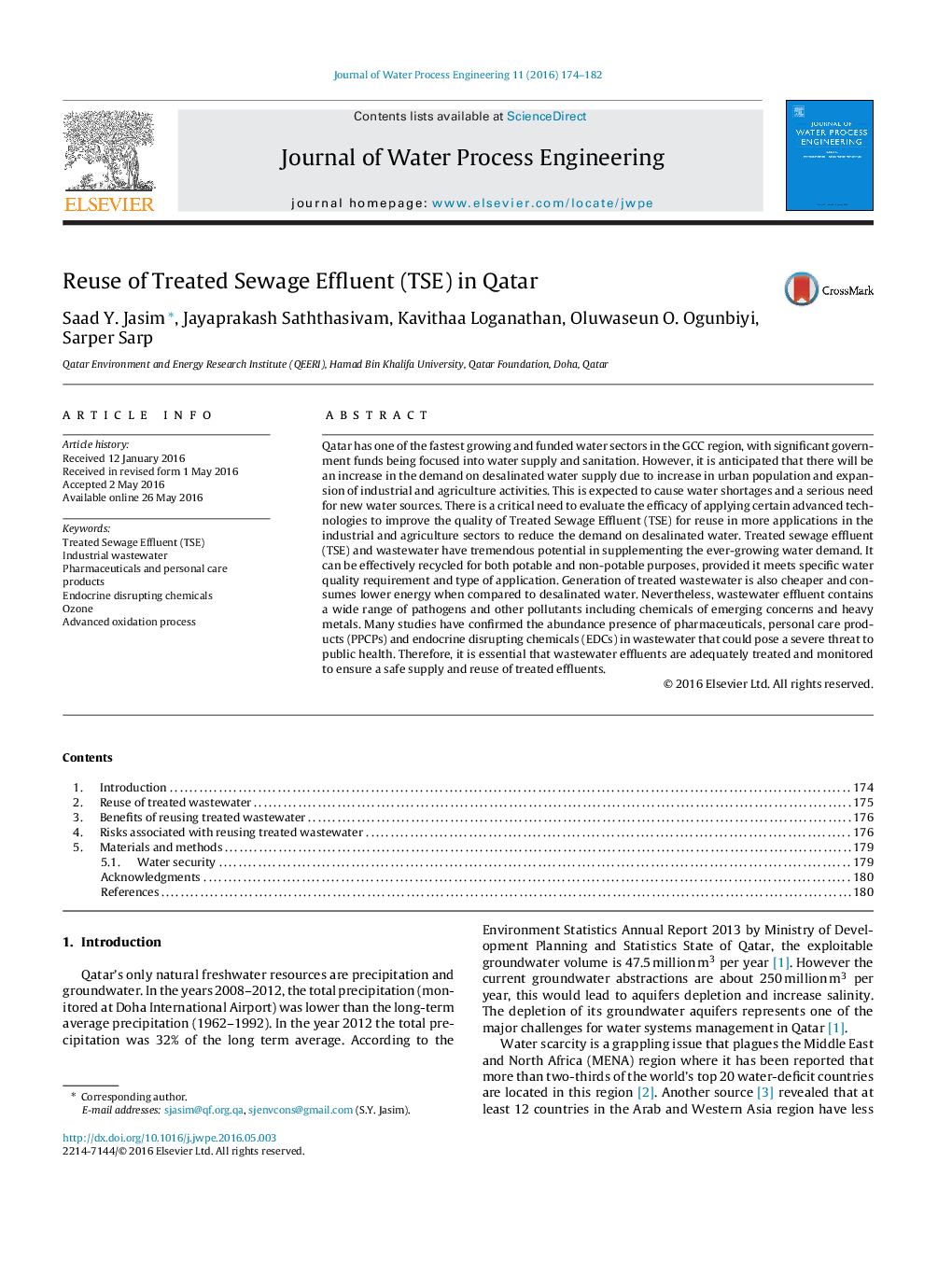| Article ID | Journal | Published Year | Pages | File Type |
|---|---|---|---|---|
| 232443 | Journal of Water Process Engineering | 2016 | 9 Pages |
Qatar has one of the fastest growing and funded water sectors in the GCC region, with significant government funds being focused into water supply and sanitation. However, it is anticipated that there will be an increase in the demand on desalinated water supply due to increase in urban population and expansion of industrial and agriculture activities. This is expected to cause water shortages and a serious need for new water sources. There is a critical need to evaluate the efficacy of applying certain advanced technologies to improve the quality of Treated Sewage Effluent (TSE) for reuse in more applications in the industrial and agriculture sectors to reduce the demand on desalinated water. Treated sewage effluent (TSE) and wastewater have tremendous potential in supplementing the ever-growing water demand. It can be effectively recycled for both potable and non-potable purposes, provided it meets specific water quality requirement and type of application. Generation of treated wastewater is also cheaper and consumes lower energy when compared to desalinated water. Nevertheless, wastewater effluent contains a wide range of pathogens and other pollutants including chemicals of emerging concerns and heavy metals. Many studies have confirmed the abundance presence of pharmaceuticals, personal care products (PPCPs) and endocrine disrupting chemicals (EDCs) in wastewater that could pose a severe threat to public health. Therefore, it is essential that wastewater effluents are adequately treated and monitored to ensure a safe supply and reuse of treated effluents.
